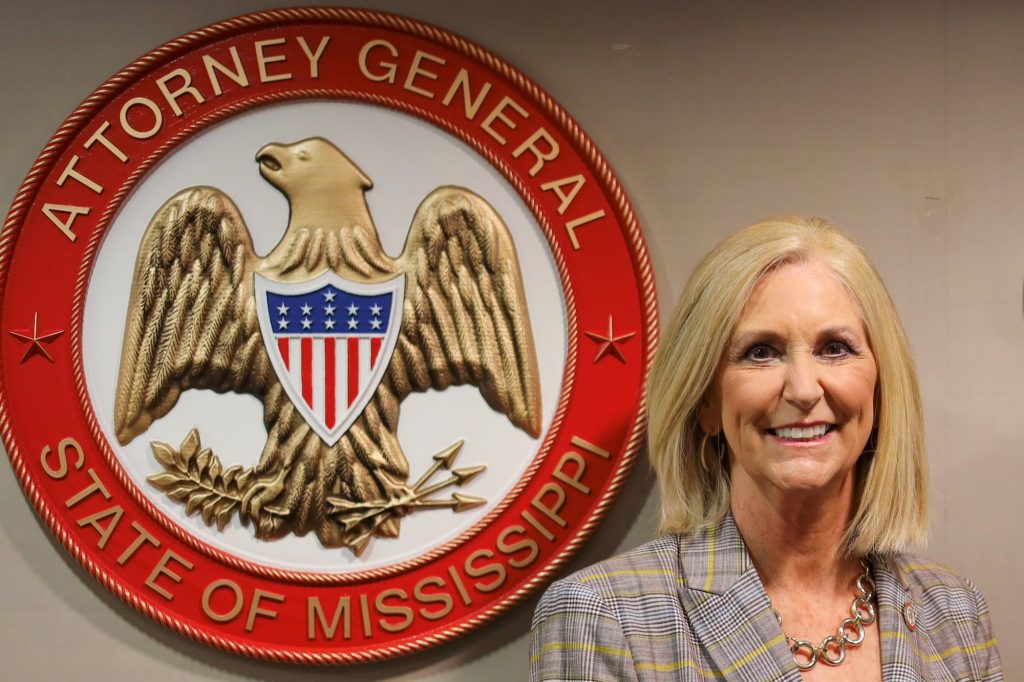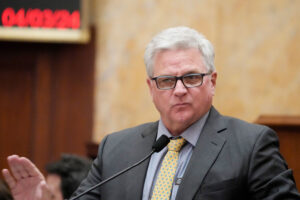Mississippi Attorney General Lynn Fitch, the state leader who is asking the U.S. Supreme Court to overturn Roe v. Wade, claimed during an interview with The Daily Signal that the pro-abortion rights side ignores the plight of women and children in poverty.
“They never talked about women from the overall perspective, and for us we do. We really want to talk about the empowerment of women, we want to talk about how we lift up their children. If they’re living in poverty, let’s change those dynamics, let’s change the upscaling. Let’s go for the education,” Fitch said. “Because you have to look at the overall comprehensive facts for these individuals as they move forward in their next step in their journey in life, and I don’t feel like the other side has taken that into account.”
Laurie Bertram Roberts, the co-founder of the Mississippi Reproductive Freedom Fund and executive director of the Yellowhammer Fund in Alabama, responded to the Republican attorney general’s remarks in an interview with the Mississippi Free Press on Thursday.
“Then why is your party denying all the policies that would help with that? Y’all didn’t even take the extra unemployment,” Roberts said, referring to Gov. Tate Reeves’ decision to cut off federal pandemic unemployment aid early. “I literally just had this conversation with somebody earlier, pro-life politicians, so-called; their exact policies are the things that increase the likelihood of people having an abortion.
“They don’t support comprehensive sex ed. They don’t support free access to birth control. Mississippi does not match federal funds spent for Title X—they do not match our public-health funding for sexual health.”
‘Give Them Health Care, That Helps’
Ending Roe v. Wade would “empower” women to pursue careers and have babies, Fitch told the U.S. Supreme Court in a brief for Dobbs v. Jackson Women’s Health Organization in July, which centers on the legality of Mississippi’s 15-week abortion ban. But a group of 154 economists rejected those arguments in a “friend-of-the-court” brief they filed last month.
About 75% of women seeking abortions, the economists said, are “low income,” and 55% “report a recent disruptive life event such as the death of a close friend or family member, job loss, the termination of a relationship with a partner, or overdue rent or mortgage obligations.” Those women, the economists wrote, “overwhelmingly lack access to paid maternity leave or to affordable childcare.”
December 1st, we are asking the Supreme Court for clarity on how the people may act to #EmpowerWomenPromoteLife. pic.twitter.com/FDXdy41fhj
— Lynn Fitch (@LynnFitchAG) October 7, 2021
During legislative debate over Mississippi’s 15-week abortion ban in 2018, two Democrats who opposed the bill, Sens. Deborah Dawkins and Barbara Blackmon, offered amendments that would have provided child care benefits for women who decide to continue a pregnancy after considering an abortion between 12 and 15 weeks gestation. Then-Lt. Gov. Tate Reeves, in his capacity as Senate president at the time, blocked all three amendments.
“The amendment attempts to provide a new benefit in the form of childcare expenses and therefore the amendment is not germane to the bill,” Reeves can be heard telling senators in a video clip from that debate that Twitter user jallen1985 tweeted yesterday.
In the group of economists’ September 2021 brief, they pointed to research showing that, compared to women who were able to obtain abortions, women who were denied abortions experienced significantly worse financial hardship; the latter group experienced an 81% increase in public records related to bankruptcies, evictions and court judgements.”
Earlier this year, the Republican-led Mississippi Legislature considered expanding Medicaid benefits for approximately 25,000 pregnant women from 60 days postpartum to a year postpartum, but lawmakers killed the extension in the last days of the 2021 session. Mississippi has the highest infant mortality rate and one of the highest maternal mortality rates in the nation, but the approximately 25,000 pregnant women and new mothers who depend on Medicaid for health care lose it after 60 days under the current regime.
“Let’s just be clear: Maternal mortality is measured within the year after having a baby,” Roberts said. “You know how you help women not die within the year after having a baby? Give them health care, that helps. You can have postpartum depression for a year after having a child.”
Pregnant Woman, Baby Die After ER Closure
Yesterday, WLBT reported on the July 5, 2021, death of 30-year-old Harmony Stribling in Belzoni, Miss., four days before she was due to give birth. The nearest hospital was a half hour away in Yazoo City, Miss., when she became suddenly ill and her husband, Byron Stribling, was not able to get her there in time. The couple, who already shared a son, had already decided to name their unborn daughter Harper, but she died along with her mother.
“She was having a seizure or a heart attack while I was driving. I called 911, and they were telling me that she needed immediate oxygen, so they needed me to pull over right then and start CPR,” WLBT reported Byron Stribling saying. “I was on the side of the road in the dark and cars were passing by. It still took the ambulance about 10 to 15 minutes to get there, so she was pretty much gone by the time the ambulance made it.”
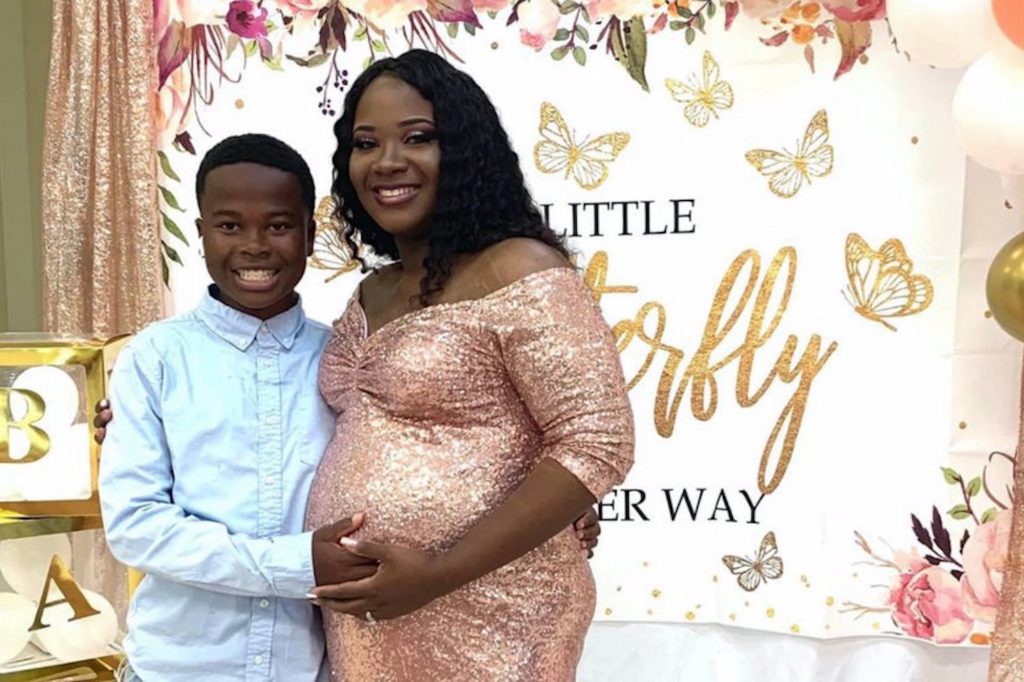
Until 2013, Belzoni had an emergency room that would have been able to quickly receive Harmony Stribling. But like five other rural hospitals in the past decade, Belzoni’s Humphreys County Memorial Hospital closed in 2013—the first in a spate of rural closures that happened as Mississippi refused to accept more than $1 billion a year to expand Medicaid.
Since President Barack Obama signed the Patient Protection and Affordable Care Act into law in 2010, most top Republicans in the state have opposed the law’s provision that would pay between 90% and 100% of the cost of expanding Medicaid. Expansion would open up the program to working Mississippians who make too much for traditional Medicaid but not enough to afford private health insurance or to qualify for federal ACA subsidies for private insurance.
Health-care leaders, including those at the Mississippi State Medical Association, say the state’s refusal to expand Medicaid has caused significant financial distress on rural emergency rooms. Those hospitals, which are often located in some of the state’s poorest communities, are required to see patients who cannot afford to pay for care and have no health coverage.
A 2018 study published in Health Affairs found that hospitals were six times less likely to close in states that expanded Medicaid as in states that refused to do so. Mississippi is one of 12 states that has not adopted Medicaid expansion despite repeated legislative attempts by some Democratic lawmakers.
Reeves: ‘Government Health Care’ Not ‘A Good Solution’
Longtime Mississippi opponents of expansion include Gov. Reeves, who was lieutenant governor and president of the Mississippi Senate from 2012 until 2020; former Gov. Phil Bryant; Mississippi House Speaker Philip Gunn; and Attorney General Fitch, who joined the Trump administration in an effort to kill the Affordable Care Act last year.
“I’m actually the only person running for governor that is opposed to more Obamacare in Mississippi. I don’t believe that putting 300,000 more Mississippians on government health care is a good solution,” Reeves said during his 2019 campaign for governor.
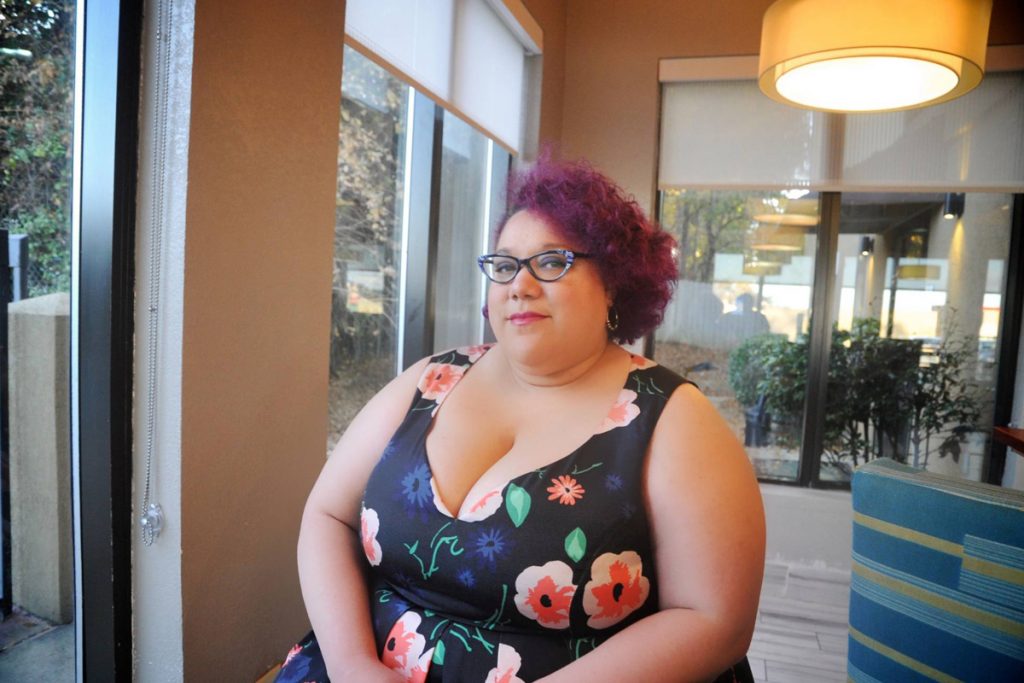
Lt. Gov. Delbert Hosemann, the current Republican Senate president, supports Medicaid expansion. In 2019, Reeves’ two Republican primary opponents, Bill Waller and Robert Foster, both supported Medicaid expansion, as did the current governor’s Democratic opponent, Jim Hood.
Like Harmony Stribling, other Mississippians have died after being unable to access care following hospital closures, too, including 23-year-old Shyteria Shardae Shoemaker who died in 2019 following an asthma attack. A group of friends she was with first attempted to drive her to the local hospital in Houston, Miss., but learned it had closed emergency-room operations under financial strain in 2014. By the time friends were able to get Shoemaker to Baptist Memorial Hospital in Calhoun City a half hour away, she was gone.
In May, a group of Mississippi health-care workers and patients joined the Mississippi Hospital Association to launch a signature initiative drive to put Medicaid expansion on the ballot. Polls have shown that a majority of Mississippians support expanding Medicaid.
“We’ve got a number of rural hospitals in our state, and 50% of those rural hospitals are in danger of closing. … We can help bridge that. We can help stop that,” Mississippi Hospital Association President Tim Moore said at the campaign’s kickoff event on May 12, 2021.
Two days later, the Mississippi Supreme Court killed the campaign when it struck down Mississippi’s entire citizen ballot initiative system as it overturned a medical-marijuana program that voters approved last year.
‘I Don’t Want To Hear From People Like Lynn Fitch’
In 2020, Fitch was one of 18 Republican attorneys general who asked the U.S. Supreme Court to invalidate the ACA. If the court had done so, it would have ended the possibility for Medicaid expansion in the state while also ending health coverage for more than 110,000 Mississippians who receive federal ACA subsidies to afford insurance. In June, the nation’s high court rejected Fitch and other Republicans’ arguments, allowing the ACA to stand.
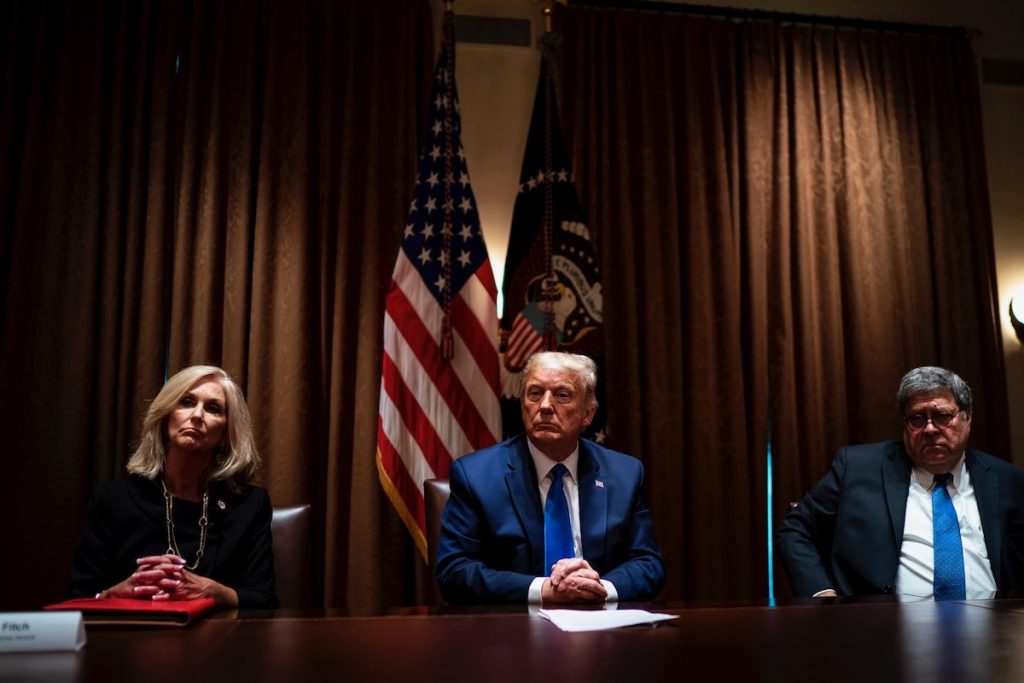
Laurie Bertram Roberts told the Mississippi Free Press yesterday that Fitch’s record does not align with the words she used during the Daily Signal interview.
“I don’t want to hear anything from people like Lynn Fitch about how they talk about the person as a whole person when the only policies I see them pushing for poor women and their children is how to adopt them out of their arms faster,” she said. “They’re cutting off parental rights to low-income women in the system in DHS—they push for that.”
Leaders in Fitch’s party and others in state government could help make life easier for women, mothers and reduce the need for abortion, Roberts said, if they prioritized things like helping low-income families get access to SNAP benefits; tackling domestic violence; testing years worth of rape kit backlogs to identify rapists; or expanding Medicaid.
“All these things that impact whether or not someone has an abortion,” Roberts said. “I ain’t seen them working on that.”


